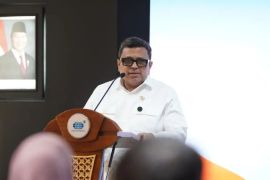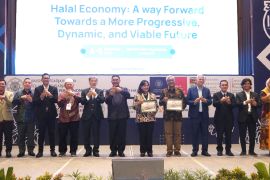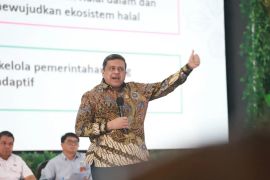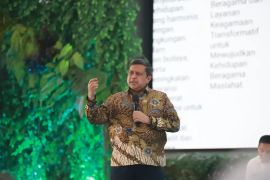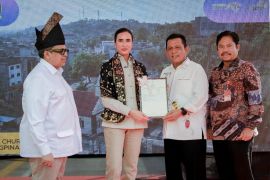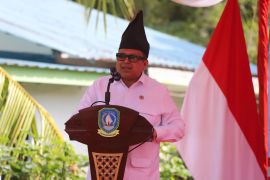“We do not aim to standardize the world, but to align our steps toward a mutual commitment to halal quality that respects one another,” BPJPH’s director of halal product assurance cooperation, Fertiana Santi, said in a statement released in Jakarta on Monday.
She explained that the global harmonization of halal standards is essential to foster the growth of the international halal industry ecosystem, while ensuring the protection of halal-conscious consumers worldwide.
To achieve this vision, she underlined the importance of cross-country collaboration in halal product assurance, which would contribute to building an inclusive halal ecosystem with mutual recognition of halal standards.
“In this context, the concept of halal, which has transformed into a global lifestyle reflecting trust, transparency, and traceability, is a fundamental principle that must be shared awareness,” she said.
Santi added that halal, as a product standard associated with health, cleanliness, quality, environmental friendliness, and the green concept can become a common reference point for global halal education and literacy.
Halal standards can also be applied in industrial ecosystems developed by anyone, regardless of their ethnicity, nationality, religion, or personal beliefs, she said.
“Furthermore, halal economic opportunities are also openly accessible to anyone, as long as industry players demonstrate compliance with the prevailing halal regulations and standards,” she added.
Related news: Aceh now has halal culinary zone at hospital, first of its kind in RI
Related news: BPJPH guarantees safe, halal meals for Indonesian pilgrims
Related news: Indonesia, Thailand to bolster halal industry cooperation
Translator: Arnidhya Nur Zhafira, Kuntum Khaira Riswan
Editor: Azis Kurmala
Copyright © ANTARA 2025




